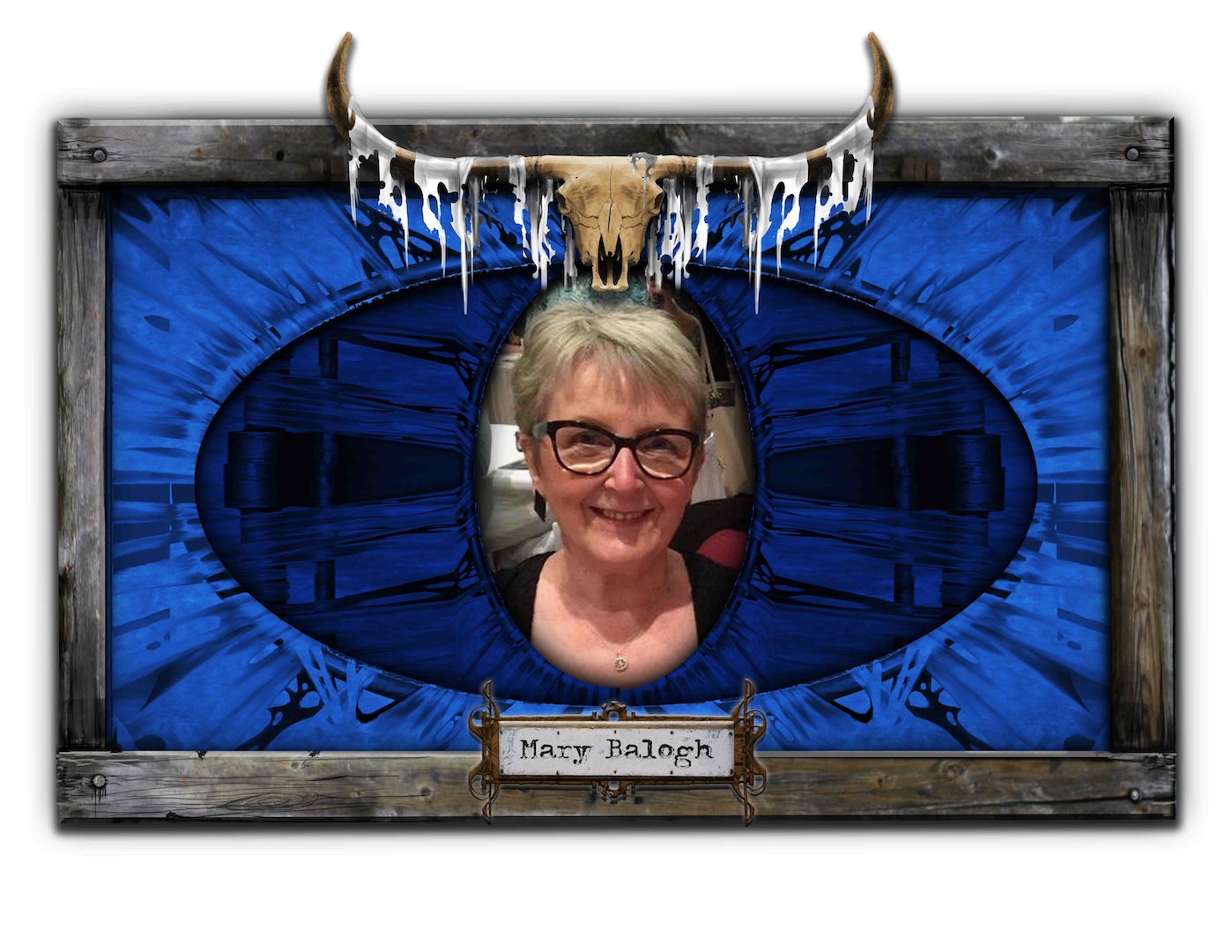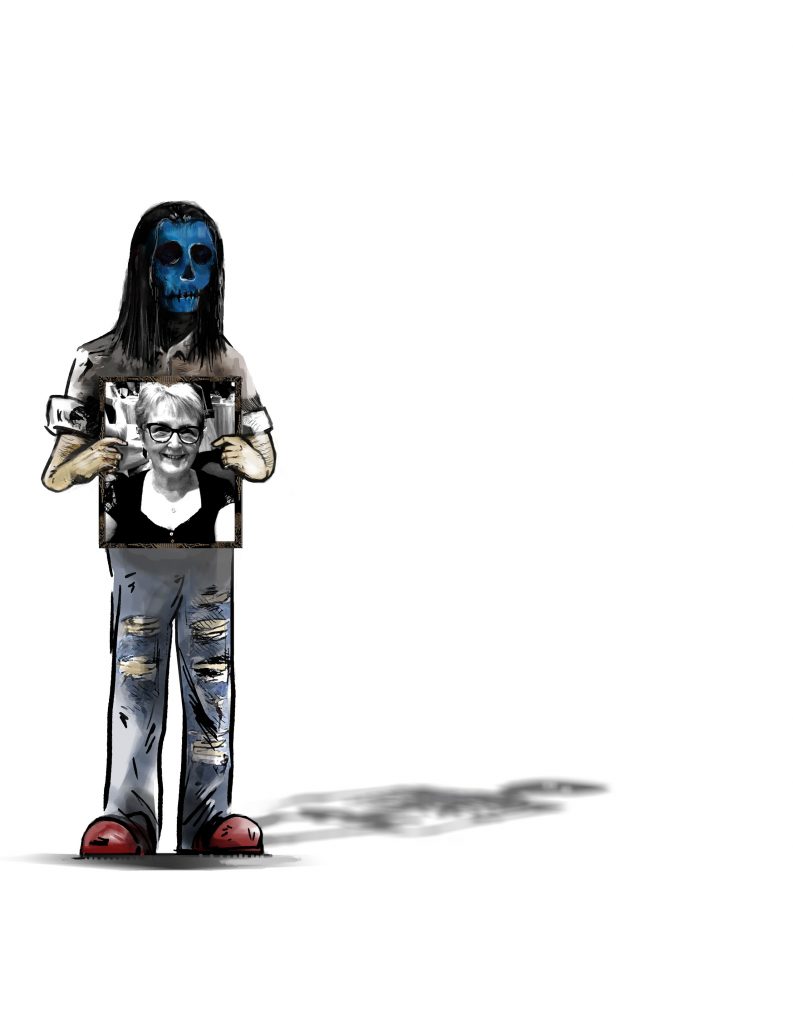Mary Balogh: New York Times Best Seller
I’ve been fortunate enough to know Mary for over twenty years. I’m even luckier that she’s mentored me in my own writing. She is generous with her time and kind in her opinions, even when I haven’t deserved them.
She is often reserved… speaking quietly in a proper British accent. It’s easy to make the mistake that she’s not paying attention to what’s going on around her (that’s often the case with quiet people) or that she is too proper to weigh in on a subject that might be deemed controversial. But that is certainly not the case.
I’ve had long conversations with Mary diving deep into religious and philosophical subjects that I’m sure would insult some of my southern relatives.
And she seemingly does so easily what all fiction writers hope to achieve. She makes the reader feel that her characters are so very real. I often get the sense that they are sitting just out of ear shot, waiting for me to ask them anything I wish. Head over to Goodreads.com and check out what readers say about her stories. Scroll down to the comments section and you’ll see that there are many near-novel length reviews. Not actually, but that’s a good indicator as to how readers are swept up in her stories.
I know that I was. A Summer to Remember is one of my favorites.
Without further ado, Mary Balogh…

Q: What is your favorite sandwich and who makes the best one?
M.B. Toasted cheese and tomato on rye bread with lots of black pepper. I make the best one.
Q: What is your favorite meal your mom makes?
M.B. My mother used to make corned beef pastries with corned beef (from cans, British-style), potatoes and onion sealed up in her own pastry. My very favorite of all the meals she cooked.
Q: How did you meet your best friend?
M.B. After I graduated from university, I took a job as a trainee accountant with the county government in Cardiff, Wales. I hated it almost from the first day and stuck it out for only a year before going back to university to study for a teaching certificate. But it was during that year that I met my lifelong, long-distance best friend. She lives in England, while I am in Canada.
Q: When or how did you find what you wanted to do?
M.B. I always wanted to be a writer. As a child I used to fill notebooks with long stories. When I grew up, of course, I discovered that I needed to eat and became a teacher (high school English) for twenty years. But the dream never died, and the time came when mere reading seemed too passive a hobby.
Q: How did you pursue it?
M.B. As my children started to grow up, I found time during the evenings to write. My first two novels were rejected (deservedly so), but the third was accepted and I was offered a two-book contract. I have never been without a contract in the more than thirty years since then.
Q: Did you have a mentor/mentors in pursuing it? Who were they and what did they do for you?
M.B. No. Writing is something I have always done entirely alone.
Q: What do you dream of doing or are you doing it? If so, then what is the goal?
M.B. I am living my dream. I have written more than 100 novels and novellas, made a good living from them. I have been on all the major bestseller lists multiple times, I have a first-rate and influential editor and a topnotch agent, I have full cover and cover blurb consultation, and I am published worldwide. My oldest, out-of-print books are now gradually being published as e-books by my agent. The goal is to continue as long as I can. I am three books into an eight-book series. If I live long enough to finish it, then who knows? I can’t really picture myself retiring.
Q: What would your 15-year-old self say to you now?
M.B. Canada? You ended up in Canada? WHY? And you really did become a writer, didn’t you? Good for you! I am actually looking forward to the future now.
Q: If life were a person what would you say?
M.B. You’re pretty tricky, aren’t you? Always shifting and changing. Impossible to understand. But endlessly intriguing. And absolutely worth at least trying to understand.
Q: If you were in charge of the world and you have no restrictions, real or imagined, what is the one thing you would give it?
M.B. Ears to listen with and the will to use them. I often think there is something to that silly old saying that we were given two ears but just one mouth for a reason. A great many of the world’s problems could be solved if we really listened to one another instead of impatiently waiting for the other person to shut up so that we can launch into our own vastly superior opinion on the question in hand. Too often, when we talk about listening to one another, what we really mean is that other people should listen to us.
Q: Has morality disintegrated to the point that we now need Yelp for people?
M.B. I’m not sure morality has disintegrated. The outer trappings of it have to a large extent, but how much of what we labeled morality were really a sort of self-righteous lip service to the cultural norms by which we were surrounded? A strong “morality” can very easily go hand in hand with self-righteousness and intolerance and rejection and downright cruelty to those who “sin.” True morality is perhaps a personal, deep-seated conviction of what is right and what is wrong for us personally. It is the core of beliefs and attitudes upon which we base our lives and our behavior. The fact that we don’t live in total anarchy suggests to me that on the whole we are moral beings.
Q: How is society getting things right?
M.B. I think a study of history going back hundreds, even thousands, of years will show us a gradual progress in human civility and compassion. It is not swift and it does not always move in a straight line. There can be years of progress followed by sudden backward adjustments (take the current reactionary political system, which seems to be infecting much of the world). But generally I would say we take two steps forward, one and a half steps back, one step forward, three-quarters of a step back, and so on. In the span of one’s lifetime it can be easy to despair, but the long picture is a positive one.
Q: What do people need in order to see each other as equals?
M.B. Mainly, humility. Open minds. The willingness to recognize that what is different is not necessarily inferior—or even superior, for that matter. And we need determination, because seeing literally everyone as an equal is not easy. It is easy enough to see most people as equals, but many of us make certain exceptions for people we consider beyond the pale for one reason or another. That is not quite good enough, is it?
Q: Do we still need religion?
M.B. I am not sure about the need for religion, but certainly we need spirituality. Our lives miss a whole crucial dimension if we cannot look beyond the material bounds of our world and our being and our life experiences. The trouble with religions is that they grow out of pure spirituality, but inevitably become bound by rules and dogma and exclusivity and intolerance of other religions, and often end up becoming the very things they should most deny. Hatred, bigotry, and narrowness of vision are often the result. On the other hand, many people undoubtedly need some framework for their spiritual lives and find it in a religion. And for many, the religion works beautifully as it was meant to do. Personally, I prefer to steer clear of any established religion and find my own path to true being.
Q: Do you have hope for the future?
M.B. Yes, I do. I think common sense, fairness, compassion, democracy, decency, and love always do triumph over their opposites, even if only temporarily. We will never reach utopia or the ideal society. We will never be perfect. But neither will we sink to irredeemable depths. I don’t think so, anyway. We will always live in a yin/yang work of duality.
Hot topic of the week: This is an open discussion. Could be Gay marriage or Confederate flag, Donald Trump, for example.
M.B. The recent election in the U.S. has really exposed the danger of truth meaning so little to so many. PolitiFact (I think that is the right name) fact-checked all the candidates and discovered that only 3% of what Trump said in the campaign was absolute truth. Clinton came out on top of all the candidates at 54% (I believe), just ahead of Sanders and Kasich. Yet it was the false but firmly held belief that she is crooked and corrupt and a liar that did her in. Trump is, of course, far more skilled than any of the others at using social media and whipping up crowds in rallies and repeating his lies often enough that they are accepted as truth. And there seems no way of countering that. Even here in Canada I came across numerous people who were rooting for Trump because Clinton was so corrupt. Yet when I would challenge them to explain how she is corrupt, they could only cite her email. All of them were surprised (and, frankly, not too interested) when I explained that all her classified email while she was secretary of state was conducted on a government server while she used her private server only for unclassified email in the day-to-day business of the state department. I suppose truth has always been at risk during political campaigns, but our age of Internet and social media has made the situation quite frighteningly dire. And vicious! I don’t think people are usually as vicious to one another in face-to-face encounters as they feel free to be on social media.
Q: What are three things that work for you? For example, I can’t find a good razor. Because of a near unbridled need for massive profits I find that many products don’t live up their advertising. What works for you?
M.B. My Kindle. I do all my reading on it and have encountered none of the problems people warn about—battery always dying, none of the cozy satisfaction of turning pages and smelling the pages of a “real” book.
My cell phone, which I use only (and rarely) for calling and texting people close to me. I am free of the enslavement to the phone I see in people all around me.
Silence. I don’t crave constant sound or ever-present music. I actually like being alone with my thoughts and the pulse of the universe.
More thought-provoking questions:
1: Do Americans/Canadians have the right to complain about immigration?
M.B. One thing that made me enormously proud to be Canadian happened after our last election, when Justin Trudeau became Prime Minister and chose his Cabinet. He very deliberately chose an equal number of men and women and pretty much every ethnic and cultural group was represented. The really great thing was that he did not have to sacrifice excellence in order to achieve such diversity. Of course, we should not complain about immigration, provided all sensible precautions are taken to make sure we do not allow any dangerous elements to slip in. We need to celebrate the wonderful variety of human experience and identity our world has to offer.
2: What would you like to see written about you on your gravestone?
M.B. Just my name with place and date of birth and death.






